- Need help with the virtual platform? 19thimmconf@getvfairs.io
This annual conference organized by the Migration Policy Institute, Catholic Legal Immigration Network, Inc., and the Georgetown University Law Center has become a must-attend event. It seeks to bring together diverse voices from a range of vantage points in and out of government to offer fresh, thoughtful analysis in hopes of bringing new understanding to some of the most consequential immigration legal and policy developments.
The conference also offers attendees, including from the legislative and executive branches, attorneys and law students, service providers, advocates, journalists, and others the opportunity to directly engage with high-level speakers.
For more on the conference organizers, visit CLINIC, Georgetown Law, and MPI.
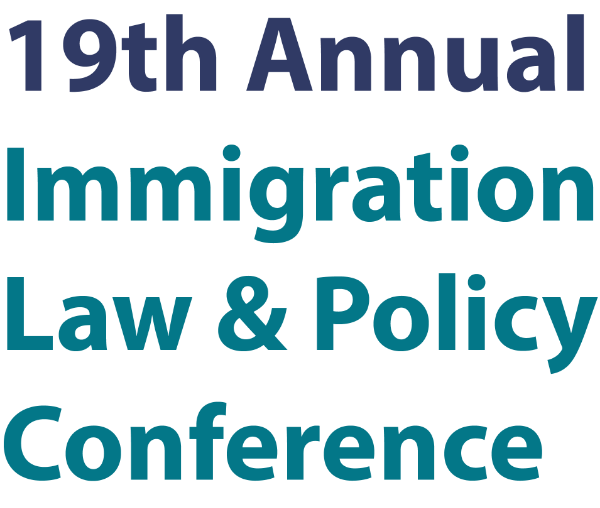
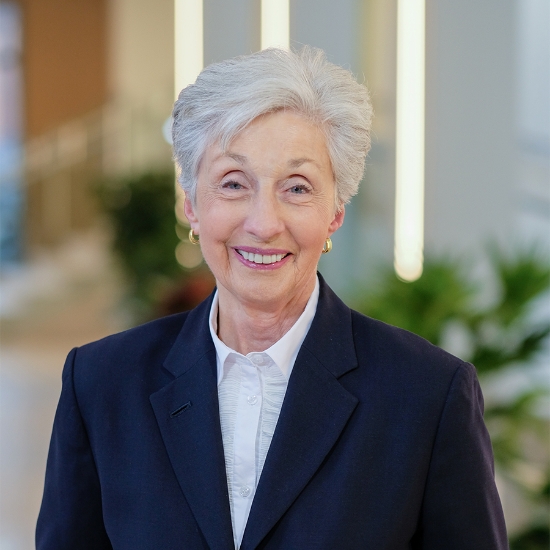 Doris Meissner, Senior Fellow and Director, U.S. Immigration Policy Program, MPI
Doris Meissner, Senior Fellow and Director, U.S. Immigration Policy Program, MPIA welcome to the conference and platform from MPI's Doris Meissner.
 9:00 to 9:45 A.M. ET
9:00 to 9:45 A.M. ET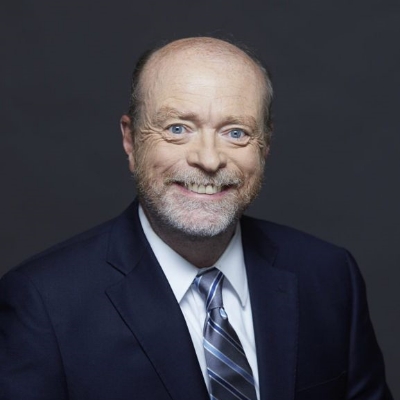 William Treanor, Dean, Georgetown Law
William Treanor, Dean, Georgetown Law 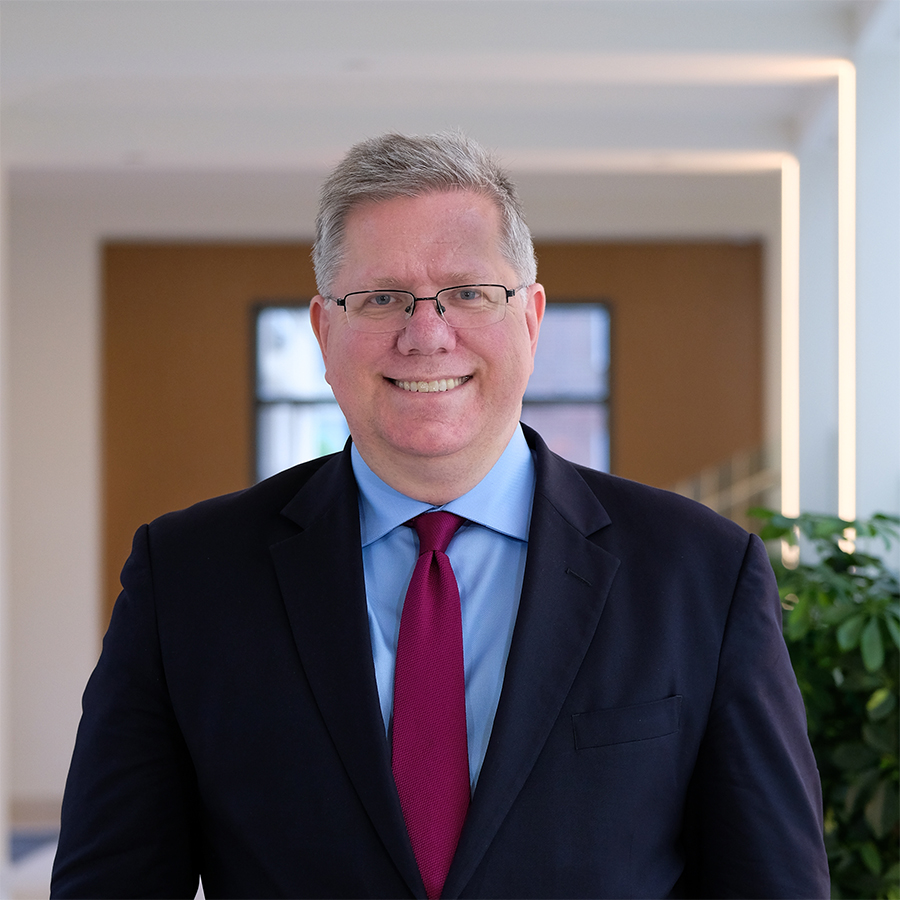 Andrew Selee, President, Migration Policy Institute (MPI)
Andrew Selee, President, Migration Policy Institute (MPI)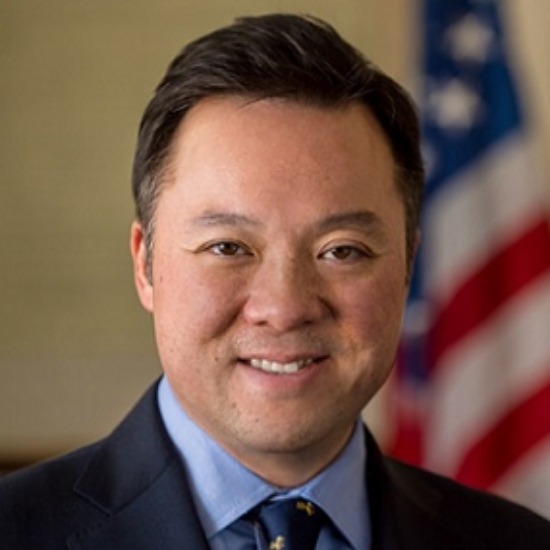 William Tong, Connecticut Attorney General
William Tong, Connecticut Attorney GeneralThis keynote session focuses on the legal efforts that states are undertaking related to immigration policy and begins with a welcome from the Dean of Georgetown Law and keynote introduction by MPI President Andrew Selee.
 9:45 to 11:00 A.M. ET
9:45 to 11:00 A.M. ET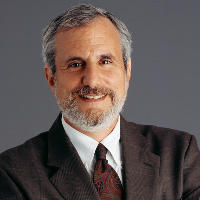 T. Alexander Aleinikoff, Director, Zolberg Institute on Migration and Mobility, and University Professor, The New School
T. Alexander Aleinikoff, Director, Zolberg Institute on Migration and Mobility, and University Professor, The New School Caitlin Dickerson, Staff Writer, The Atlantic
Caitlin Dickerson, Staff Writer, The Atlantic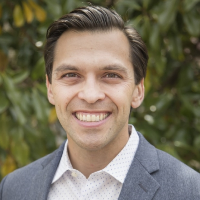 Jorge Lima, Senior Vice President, Policy, Americans for Prosperity
Jorge Lima, Senior Vice President, Policy, Americans for Prosperity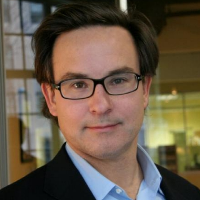 Simon Rosenberg, President, NDN and the New Policy Institute
Simon Rosenberg, President, NDN and the New Policy Institute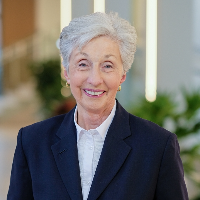 Moderator: Doris Meissner, Senior Fellow and Director, U.S. Immigration Policy Program, MPI
Moderator: Doris Meissner, Senior Fellow and Director, U.S. Immigration Policy Program, MPIFollowing an administration that had arguably been the most activist yet on immigration, President Joe Biden has outpaced his predecessor in the issuance of executive actions that touch many corners of the immigration system—from major changes to the processing of border asylum cases and immigration enforcement priorities to more modest efforts, such as adjusting how immigration cases are processed. Yet the Biden agenda on immigration has been stymied by opposition from red-state politicians who have turned to the courts and otherwise asserted a more muscular role, rising encounters at the U.S.-Mexico border that have reduced the political space for other action, and a Congress that continues to remain unable to pass legislation on even modest fixes widely recognized as necessary.
What is the Biden record on immigration? What is the state of play as both political parties near a highly consequential mid-term election? And what challenges lie ahead as growing humanitarian protection needs, continuing pressure at the southwest border, and legal immigration narrowed by processing backlogs add complexity to an already fraught policy arena? A panel of veteran policy and political analysts and a journalist will trade insights during this wide-ranging conversation.
 Andrew Selee, President, Migration Policy Institute (MPI)
Andrew Selee, President, Migration Policy Institute (MPI)Grab a coffee and listen to MPI's president discuss the need for new migration management approaches as migration becomes increasingly hemispheric in nature.
 11:15 A.M. to 12:30 P.M. ET
11:15 A.M. to 12:30 P.M. ET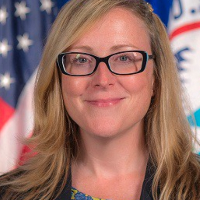 Jennifer Higgins, Deputy Director, U.S. Citizenship and Immigration Services
Jennifer Higgins, Deputy Director, U.S. Citizenship and Immigration Services  Sara Ramey, Executive Director, Migrant Center for Human Rights
Sara Ramey, Executive Director, Migrant Center for Human Rights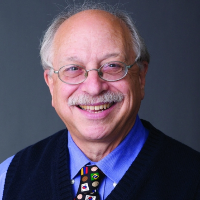 Philip G. Schrag, Co-Director, Center for Applied Legal Studies, Georgetown Law
Philip G. Schrag, Co-Director, Center for Applied Legal Studies, Georgetown Law Moderator: Andrew I. Schoenholtz, Professor from Practice, Georgetown Law
Moderator: Andrew I. Schoenholtz, Professor from Practice, Georgetown LawProviding access to asylum for arrivals at the U.S.-Mexico border has long been hampered by a U.S. asylum system in crisis. More complexity was added with the implementation of the pandemic-era Title 42 border expulsions policy that has denied the basic right to apply for asylum for many and litigation around the Migrant Protection Protocols (aka Remain in Mexico) program begun under the Trump administration and continued during the Biden presidency.
The Biden administration has advanced and begun implementing a new asylum system that it contends will make the processing of asylum cases fairer and reduce some of the years-long delays that neither serve the interests of humanitarian protection nor effective migration management. How is the final rule that establishes the new system affecting practices at the border and within the executive branch? How are some of the criticisms being addressed? What should a post-Title 42 enforcement regime entail? And what is the status of the MPP program?
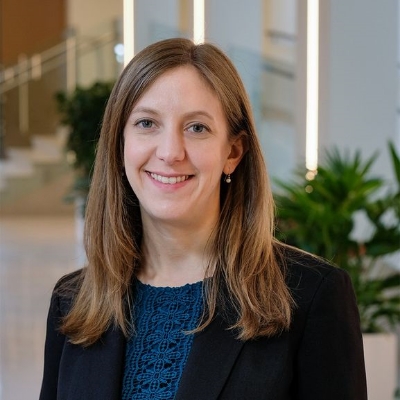 Julia Gelatt, Senior Policy Analyst, MPI
Julia Gelatt, Senior Policy Analyst, MPIGrab your lunch and hear a brief description from MPI Senior Policy Analyst Julia Gelatt on how legal immigration has fallen during the pandemic and its future prospects.
 1:30 to 2:45 P.M. ET
1:30 to 2:45 P.M. ET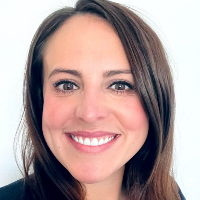 Kristie De Peña, Vice President of Policy and Director of Immigration, Niskanen Center
Kristie De Peña, Vice President of Policy and Director of Immigration, Niskanen Center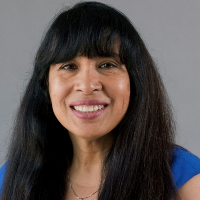 Suzanne Gamboa, Senior Writer, NBC News
Suzanne Gamboa, Senior Writer, NBC News 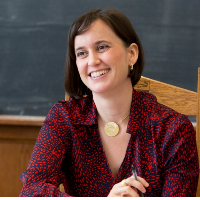 Cristina Rodríguez, Leighton Homer Surbeck Professor of Law, Yale Law School
Cristina Rodríguez, Leighton Homer Surbeck Professor of Law, Yale Law School 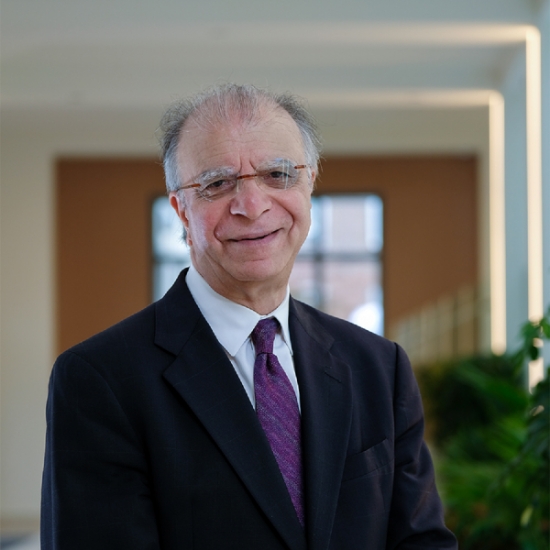 Moderator: Muzaffar Chishti, MPI Senior Fellow
Moderator: Muzaffar Chishti, MPI Senior FellowIn a trend that began several administrations ago and has dramatically accelerated, opponents of the administration in power have been heading to court to block immigration policies and rulemaking. During the Biden administration, red state elected officials have turned to the courts to block changes to interior enforcement, the end of the Migrant Protection Protocols, the use of prosecutorial discretion, and more.
How are court rulings affecting the Biden agenda, and how is the administration responding? What do recent Supreme Court decisions, including on DACA, suggest for the future? And what have been the impacts and politics of states banding together in litigation against administrations of the opposing party? Beyond turning to the courts, Texas has asserted a muscular role in immigration enforcement, spending billions of dollars on a border operation, busing migrants to Washington, DC and New York, and more. In the continued absence of action by Congress, will more states rush in to fill the power vacuum?
 2:45 to 3:30 P.M. ET
2:45 to 3:30 P.M. ET Doris Meissner, Senior Fellow and Director, U.S. Immigration Policy Program, MPI
Doris Meissner, Senior Fellow and Director, U.S. Immigration Policy Program, MPI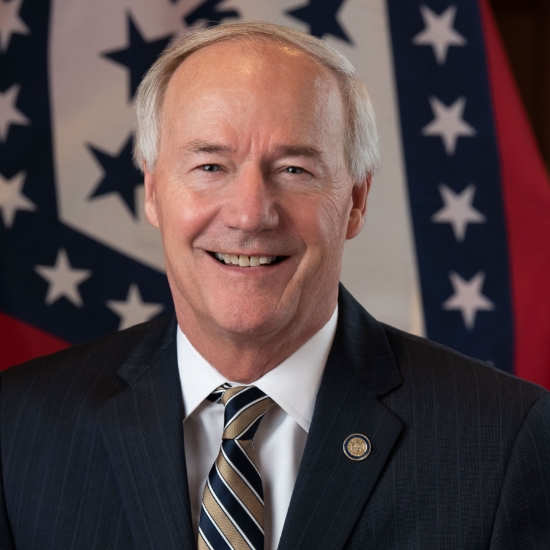 Asa Hutchinson, Governor of Arkansas
Asa Hutchinson, Governor of Arkansas This keynote session examines what is happening at the state level on immigration policy and some key issues that policymakers need to consider ahead.
Grab a coffee and check out resources in our Reading Room or our Video Vault. Or head over to the Lounge to network with individual attendees or participate in group chat.
 3:45 to 5:00 P.M. ET
3:45 to 5:00 P.M. ET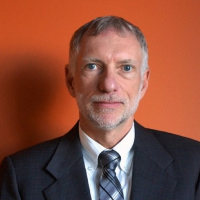 Lawrence Bartlett, Director of Refugee Admissions, Bureau of Population, Refugees, and Migration, U.S. Department of State
Lawrence Bartlett, Director of Refugee Admissions, Bureau of Population, Refugees, and Migration, U.S. Department of State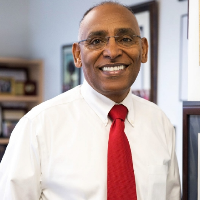 Eskinder Negash, President and CEO, U.S. Committee for Refugees and Immigrants
Eskinder Negash, President and CEO, U.S. Committee for Refugees and Immigrants 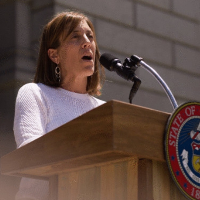 Kit Taintor, Vice President of Policy and Practice, Welcome.US
Kit Taintor, Vice President of Policy and Practice, Welcome.US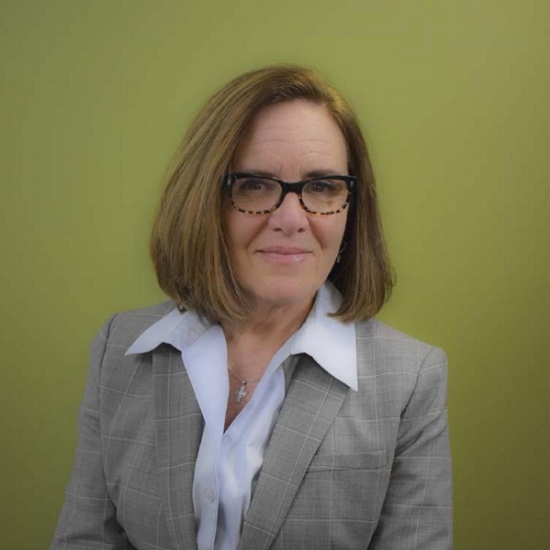 Moderator: Anna Gallagher, Executive Director, Catholic Legal Immigration Network, Inc. (CLINIC)
Moderator: Anna Gallagher, Executive Director, Catholic Legal Immigration Network, Inc. (CLINIC)U.S. individuals, communities, and organizations have rallied to welcome tens of thousands of Afghans evacuated from Kabul amid a chaotic U.S. withdrawal one year ago and to sponsor more than 100,000 Ukrainians who fled after Russia’s invasion. The displacement crises have led to policy innovations, including community and private sponsorship of Ukrainians.
How are these responses to displacement crises different from other humanitarian crises? And what might the implications be for the U.S. system of humanitarian protection going forward, given the ongoing weaknesses of a resettlement system on track to resettle just one-fifth of refugees targeted for resettlement this year? How will refugee policy and integration be affected by the growing use of temporary statuses such as parole (including the resumption of the Cuban and Haitian Family Parole programs) and Temporary Protected Status?
The panel of top experts also will examine how the resettlement infrastructure is rebounding from major cuts, and where the continuing gaps and needs in the protection system exist.
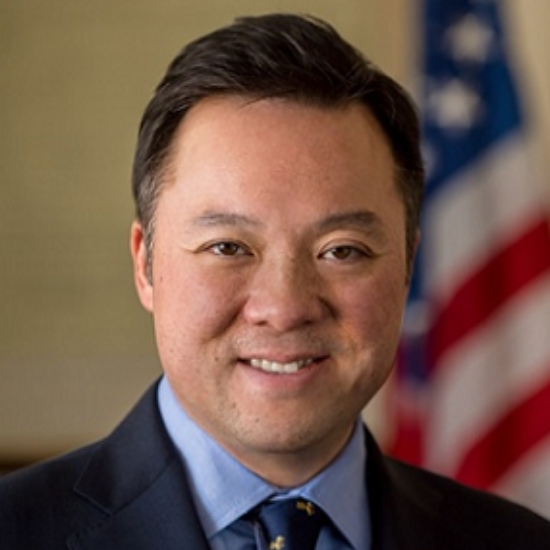
Attorney General, State of Connecticut
William Tong is the 25th Attorney General to serve the State of Connecticut, having assumed office in January 2019 as the first Asian American elected at the statewide level in Connecticut.
The son of immigrants and small business owners, Attorney General Tong has taken a leading role in the fight against the opioid crisis, championing strong legal actions against opioid manufacturers, distributors, and other bad actors that have created and fueled this crisis. He has also become a national leader on anti-trust enforcement, pursuing strong actions against large corporations in the pharmaceutical and technology sectors that have abused their positions to put profits ahead of consumers.
Prior to his service as Attorney General, Mr. Tong worked as a litigator with private firms for 18 years before being elected as a State Representative in the Connecticut General Assembly, a seat he held for 12 years and in which he was the chairman of the Judiciary and Banking Committees.
Attorney General Tong resides in Stamford with his wife, Elizabeth, and their three children.
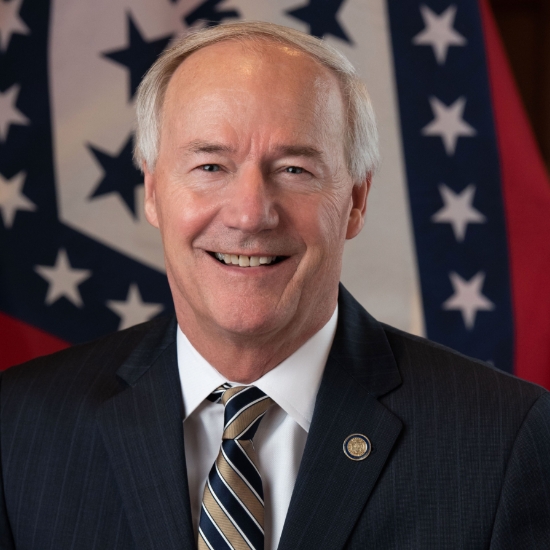
Governor, State of Arkansas
Asa Hutchinson is the 46th governor of the State of Arkansas. In 2018, he was re-elected with more votes than any other candidate for governor in the state's history. He has won recognition for the state as a leader in computer science education, cut taxes by over $250 million, and signed a law that exempts the retirement pay of veterans from state income tax.
President Ronald Reagan appointed Governor Hutchinson as U.S. Attorney for the Western District of Arkansas. In 1996, he won the first of three terms in the U.S. House of Representatives. During his third term in Congress, President George W. Bush appointed him Director of the Drug Enforcement Administration and later as Undersecretary in the newly created Department of Homeland Security, where he was responsible for more than 110,000 federal employees in agencies including U.S. Customs and Border Protection and U.S. Immigration and Customs Enforcement.
The Governor is former Chairman of the National Governors Association. He is also the former Co-Chair of the Council of Governors and the former Chairman of the Interstate Oil and Gas Compact Commission, Southern States Energy Board, and the Southern Regional Education Board.
Governor Hutchinson grew up on a small farm in Gravette. He is a graduate of the University of Arkansas law school. He and his wife, Susan, have four children and seven grandchildren.
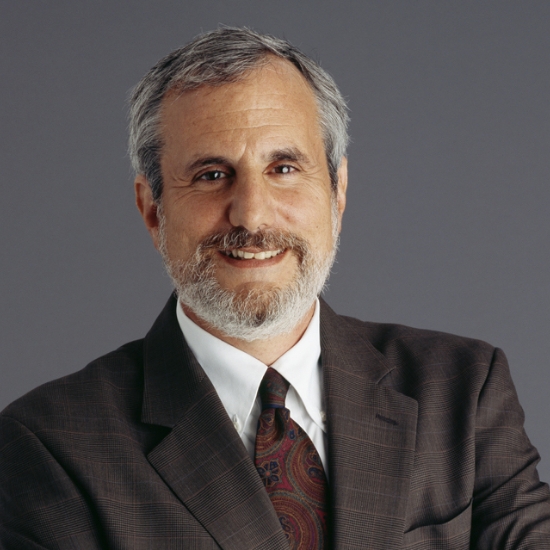
Director, Zolberg Institute on Migration and Mobility, and University Professor, The New SchoolFormer Deputy UN High Commissioner for Refugees
T. Alexander Aleinikoff is University Professor, and has served as Director of the Zolberg Institute on Migration and Mobility since 2017. He has written widely in the areas of immigration and refugee law and policy, transnational law, citizenship, race, and constitutional law. Co-author of leading legal casebooks on immigration law and forced migration, he is at work on a book tentatively titled, The Arc of Protection: Reforming the International Refugee Regime.
Before coming to The New School, Mr. Aleinikoff served as United Nations Deputy High Commissioner for Refugees (2010-15) and was a professor at Georgetown University Law Center, where he also served as Dean and Executive Vice President of Georgetown University. He was Co-Chair of the Immigration Task Force for President Barack Obama’s transition team in 2008. From 1994 to 1997, he served as General Counsel, and then Executive Associate Commissioner for Programs, at the Immigration and Naturalization Service (INS).
He received a BA from Swarthmore College and a J.D. from the Yale Law School.
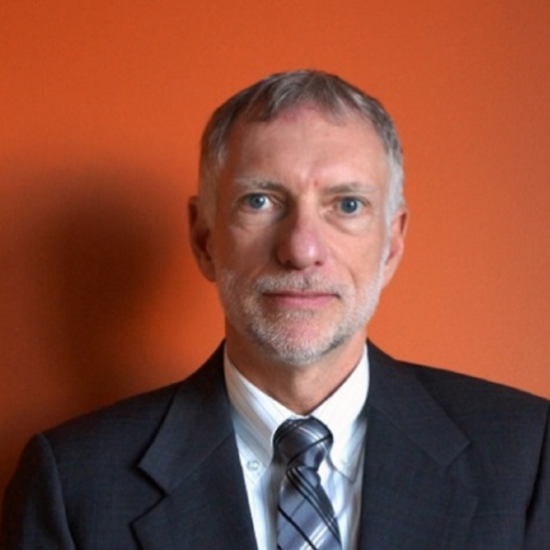
Director of Refugee Admissions, Bureau of Population, Refugees, and Migration, U.S. Department of State
Lawrence Bartlett is a career member of the Senior Executive Service and has served since 2010 as Director of the Refugee Admissions Office of the U.S. Department of State’s Bureau of Population, Refugees, and Migration (PRM). During his tenure, the program has resettled more than 700,000 refugees for permanent resettlement to the United States.
Mr. Bartlett previously served as Deputy for the PRM Office of Asia and the Near East, leading programs throughout the region and contributing to emergency response planning and humanitarian operations in Afghanistan, Iraq, and Lebanon. Prior to joining the State Department in 1991, Mr. Bartlett served as U.S. Peace Corps Country Director in Jordan and Bulgaria, and as Deputy Country Director in Thailand and Hungary. He served as a Peace Corps Volunteer in Yemen helping implement the first national immunization program.
He is the recipient of the Warren Christopher Award for Outstanding Achievement in Global Affairs and the Presidential Rank Award in the Senior Executive Service.

Senior Fellow and Director, MPI’s office at NYU School of Law
Muzaffar Chishti, a lawyer, is an MPI Senior Fellow and Director of the MPI office in New York, based at New York University School of Law. His work focuses on U.S. immigration policy at the federal, state, and local levels; the intersection of labor and immigration law; immigration enforcement; civil liberties; and immigrant integration.
Prior to joining MPI, Mr. Chishti was Director of the Immigration Project of the Union of Needletrades, Industrial & Textile Employees (UNITE).
He has testified extensively on immigration policy issues before Congress and is frequently quoted in the media. In 1992, as part of a U.S. team, he assisted the Russian Parliament in drafting its legislation on forced migrants and refugees. He is a 1994 recipient of the New York State Governor’s Award for Outstanding Asian Americans and a 1995 recipient of the Ellis Island Medal of Honor.
Mr. Chishti was educated at St. Stephen’s College, Delhi; the University of Delhi; Cornell Law School; and the Columbia School of International Affairs.
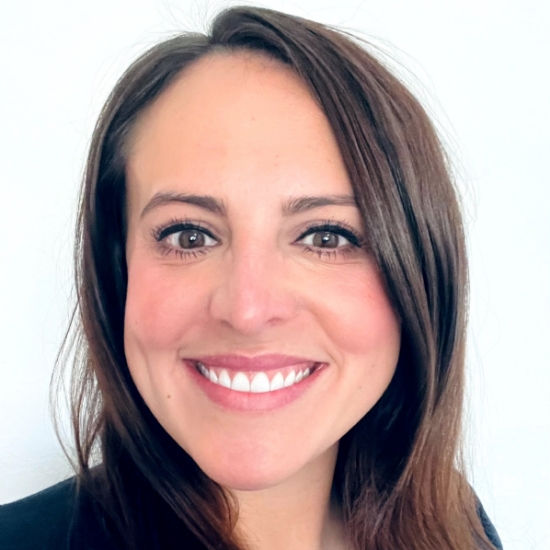
Vice President of Policy and Director of Immigration, Niskanen Center
Kristie De Peña is the Vice President for Policy and Director of Immigration at the Niskanen Center, where she focuses on immigration and national security law and policy.
She has consulted with the State Department on immigration, health care, and security issues prior to her work at the Niskanen Center. Her work has been cited in a range of national news organizations.
She earned a Master of Laws in national security and foreign policy from George Washington University School of Law and a J.D. from the University of Iowa College of Law.

Staff Writer, The Atlantic
Caitlin Dickerson is an award-winning investigative reporter and feature writer for The Atlanticmagazine. Ms. Dickerson has reported on immigration from three continents and dozens of American cities. She has broken news about changes in deportation and detention policy, and often profiles the lives of immigrants, including those without legal status.
Previously, Ms. Dickerson spent nearly five years as a reporter at The New York Times, and five years as a producer and reporter for NPR. She is a Peabody and Edward R Murrow Award recipient, and a three-time finalist for the Livingston Award. She is writing a book about the systemic impact of deportation on American society.
Ms. Dickerson graduated magna cum laude from California State University, Long Beach, where she earned a bachelor's degree in international studies and was inducted into the Phi Beta Kappa Society.

Executive Director, Catholic Legal Immigration Network, Inc.
Anna Marie Gallagher is Executive Director of the Catholic Legal Immigration Network, Inc. (CLINIC). She has practiced immigration and refugee law for more than three decades, working in the United States, Central America, and Europe. She helped found an international nonprofit focused on accompanying and advocating for the rights of internally displaced persons and returned refugees in Guatemala called Center for Human Rights Legal Action (Centro para la Acción Legal en Derechos Humanos, CALDH).
Before joining CLINIC in 2019, Ms. Gallagher was a shareholder and head of the litigation practice area for Maggio, Kattar, Nahajzer + Alexander. Previously, she worked as a consultant in Europe to organizations with a focus on policy planning and analysis, training, and research on refugee and migration issues. She was a member of the Extended International Team of the Jesuit Refugee Service’s International Office and of the Policy Team of the Jesuit Refugee Service Europe. She also served as Deputy Director of the Legal Action Center for the American Immigration Law Foundation.
Ms. Gallagher received her bachelor’s from Temple University, her master’s in advocacy from Georgetown University Law Center, and her J.D. from the Antioch School of Law.
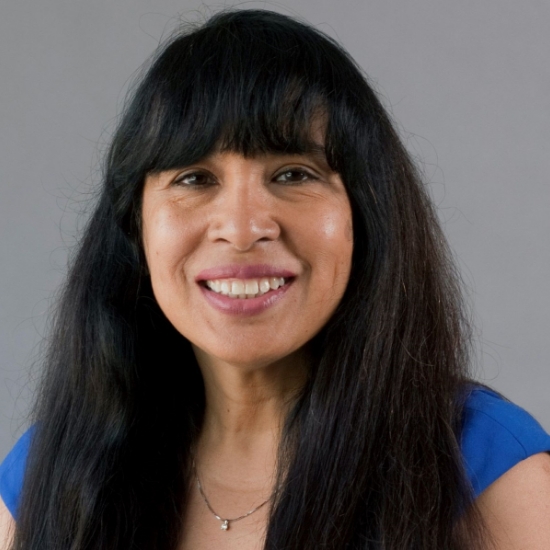
Senior Writer, NBC News
Suzanne Gamboa is a senior writer at NBC News, covering the lives of Latinos, their history, and their future. Her articles can be found at NBCLatino.com, part of NBCNews.com.
Prior to joining NBC Latino, Ms. Gamboa worked 13 years in the Washington, D.C. bureau of the Associated Press (AP), covering the Texas congressional delegation, immigration, the border and U.S.-Mexico issues, veterans, and race and ethnicity. Before that, she served as the AP’s El Paso, Texas, correspondent and worked in Austin for AP and the Austin American-Statesman. She was an assistant city editor at the American-Statesman, overseeing education reporters.
She a graduate of the University of Texas.
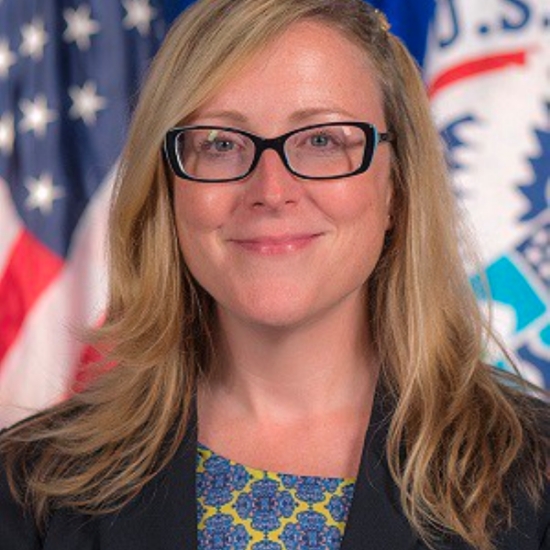
Deputy Director, U.S. Citizenship and Immigration Services
Jennifer B. Higgins is Deputy Director of U.S. Citizenship and Immigration Services (USCIS), a position she assumed in January 2022. Prior to this appointment, she served in a variety of leadership positions during her more than two decades of federal service, including serving as the Acting Chief of Staff at the Department of Homeland Security (DHS) and the Associate Director for the Refugee, Asylum, and International Operations Directorate (RAIO) from January 2017 to 2021. She also served as the Chief of Staff for the DHS Deputy Secretary from 2016-2017, advising DHS leadership on refugee, immigration, and national security issues while managing daily operations. From 2007-2016, she held key leadership positions within RAIO, first as the Branch Chief for Asylum Operations and then as the Deputy Chief for the Refugee Affairs Division. She was appointed to the Senior Executive Service as the RAIO Deputy Associate Director in 2014.
Ms. Higgins began her federal career in 1999 as a Presidential Management Fellow with the Immigration and Naturalization Service’s Office of International Affairs. Upon completion of her fellowship in 2001, she joined the Refugee Affairs Division as an immigration officer.
She holds a master's degree in comparative politics from American University.
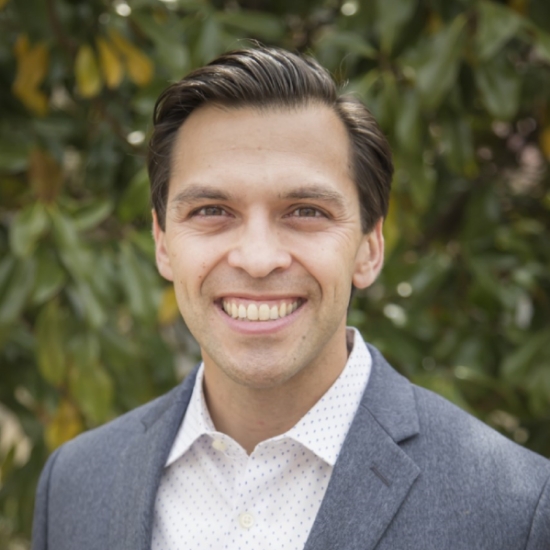
Vice President, Immigration and Economic Progress, Stand Together
Senior Vice President, Policy, Americans for Prosperity
Jorge Lima is Senior Vice President of Policy at Americans for Prosperity, a grassroots organization dedicated to advancing policy solutions to empower people. He is also Vice President of Immigration and Economic Progress for Stand Together, leading strategies to address those issues across societal institutions.
Mr. Lima previously served as the Executive and Policy Director of The LIBRE Initiative, leading Latino outreach strategies. Prior to that, he was Strategic Policy Advisor to Luis Fortuño, Governor of Puerto Rico. He also practiced law as an associate at the law firm of Holland & Knight. He began his career as an attorney for the city of Miami and is a member of the Florida Bar.
He holds a bachelor’s of business administration from the University of Miami and a J.D. from Georgetown University.

Senior Fellow and Director, U.S. Immigration Policy Program, Migration Policy Institute
Doris Meissner, former Commissioner of the U.S. Immigration and Naturalization Service (INS), is a Senior Fellow at MPI, where she directs the Institute’s U.S. immigration policy work. Her work and expertise include the role of immigration in America’s future; administering the nation’s immigration laws, systems, and government agencies; immigration and politics; immigration enforcement and border control; cooperation with other countries; and national security.
From 1993 to 2000, she served in the Clinton administration as Commissioner of the INS, then a bureau in the Justice Department. Her accomplishments included reforming the nation’s asylum system; creating new strategies for managing U.S. borders; improving naturalization and other services for immigrants; shaping new responses to migration and humanitarian emergencies; strengthening cooperation and joint initiatives with Mexico, Canada, and other countries; and managing growth that doubled the agency’s personnel and tripled its budget.
She first joined the Justice Department in 1973 as a White House Fellow and Special Assistant to the Attorney General and, after serving in various senior positions, became Acting Commissioner of the INS in 1981. In 1986, she joined the Carnegie Endowment for International Peace as a Senior Associate, where she created the Immigration Policy Project, which evolved into MPI in 2001.
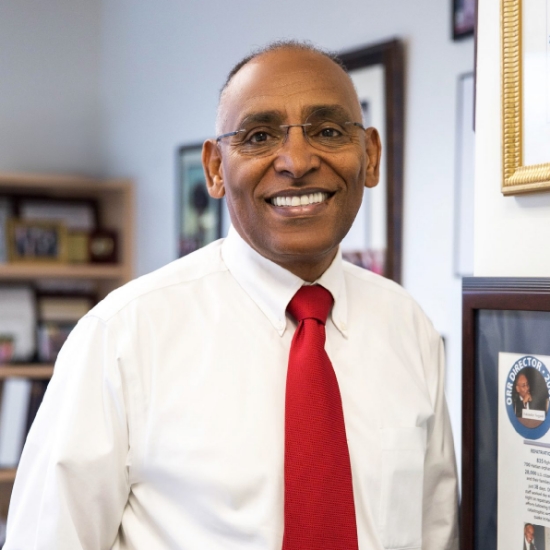
President and CEO, U.S. Committee for Refugees and Immigrants
Eskinder Negash is President and CEO of the U.S. Committee for Refugees and Immigrants (USCRI), an organization founded in 1911 to protect the rights and address the needs of persons in forced or voluntary migration worldwide and support their transition to a dignified life.
Prior to joining USCRI, he served from 2009-2015 as Director of the Office of Refugee Resettlement (ORR), the largest government-funded refugee resettlement organization in the world. Under his leadership, ORR served more than 850,000 people in six years. Before joining the federal government, Mr. Negash served as Vice President and Chief Operating Officer of USCRI for seven years. He also was Vice President and Chief Administrative Officer of the International Institute of Los Angeles for 15 years.

Executive Director, Migrant Center for Human Rights
Sara Ramey is Executive Director of the Migrant Center for Human Rights. An immigration attorney, she has represented immigrants, primarily detained asylum seekers, in Texas since 2012, including as a Staff Attorney at the nonprofit South Texas Pro Bono Representation Project (ProBAR) and Refugee Center for Education and Legal Services (RAICES).
She has won numerous asylum cases, including appeals at the Board of Immigration Appeals and the Fifth U.S. Circuit Court of Appeals, as well as Violence Against Women Act (VAWA), U visa, Deferred Action for Childhood Arrivals (DACA), adjustment of status, consular processing, Temporary Protection Status (TPS), citizenship, and termination and administrative closure cases.
Previously, she worked for Amnesty International in Australia and Paraguay, the United Nations High Commissioner for Refugees in Washington, D.C., the Inter-American Commission on Human Rights, the Center for Justice and International Law, and the American Friends Service Committee, among others.
She holds a Bachelor of Arts in international political economy from the University of Puget Sound and a J.D. from the Washington College of Law, American University.
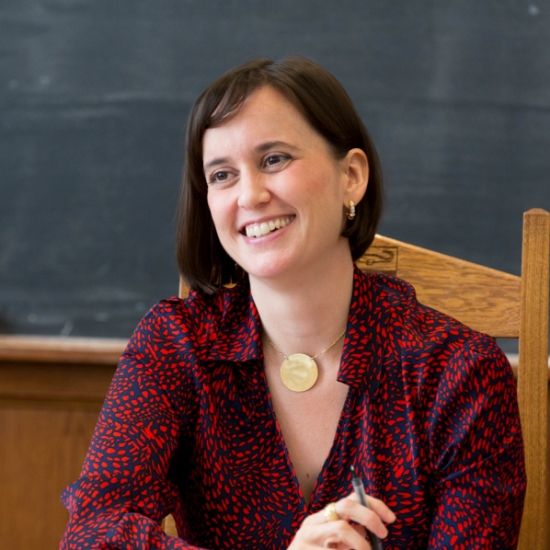
Leighton Homer Surbeck Professor of Law, Yale Law School
Cristina M. Rodríguez is the Leighton Homer Surbeck Professor of Law at Yale Law School. Her fields of research and teaching include constitutional law and theory, immigration law and policy, and administrative law and process. She joined Yale Law School in 2013 after serving for two years as Deputy Assistant Attorney General in the Office of Legal Counsel at the U.S. Department of Justice. Before that, she was on the faculty at the New York University School of Law from 2004–2012 and has been Visiting Professor of Law at Stanford, Harvard, and Columbia Law Schools. In 2021, she was appointed by President Joe Biden to co-chair the Commission on the Supreme Court of the United States.
Her recent writings include The President and Immigration Law, coauthored with Adam Cox and published by Oxford University Press in September 2020, exploring the long history of presidential control over immigration policy and its implications for the future of immigration law and the presidency itself.
She earned her B.A. and J.D. degrees from Yale and attended Oxford University as a Rhodes Scholar, where she received a Master of Letters in modern history. Following law school, she clerked for Judge David S. Tatel of the U.S. Court of Appeals for the D.C. Circuit and Justice Sandra Day O’Connor of the U.S. Supreme Court.
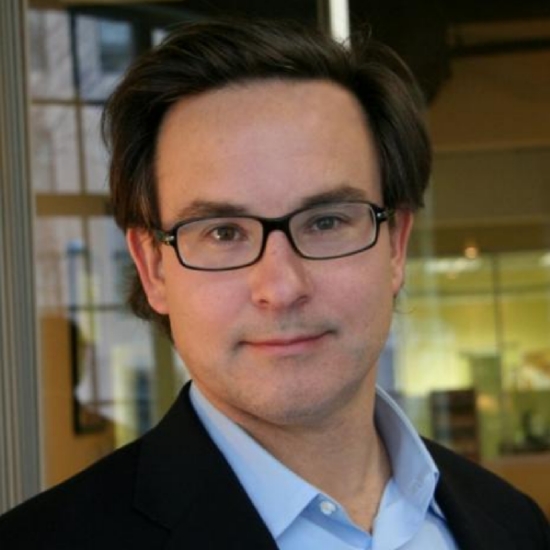
President, NDN and the New Policy Institute
Simon Rosenberg is President of NDN and the New Policy Institute, advising leading politicians, administration officials, and policymakers on a wide range of issues in the United States and abroad. A veteran of two presidential campaigns, including the 1992 Clinton war room, Mr. Rosenberg is a well-known political strategist and frequent commentator in national media.
Outside of his work with NDN, Mr. Rosenberg has advised private corporate and political clients, including Univision, Nanomix, Discourse Intelligence, and the Democratic Congressional Campaign Committee. He also has worked as a television news producer.
Mr. Rosenberg is a graduate of Tufts University.

Co-Director, Center for Applied Legal StudiesDirector, Human Rights Institute
Professor from Practice, Georgetown Law
Andrew I. Schoenholtz is a Professor from Practice at Georgetown Law, where he co-directs the Center for Applied Legal Studies, the asylum clinic in which students represent asylum seekers. He also directs the Human Rights Institute and the Certificate in Refugees and Humanitarian Emergencies. He has taught courses on refugee law and policy, refugees and humanitarian emergencies, and immigration law and policy, as well as a practicum on the rights of detained immigrants.
Prior to teaching at Georgetown, Dr. Schoenholtz served as Deputy Director of the U.S. Commission on Immigration Reform. He also practiced immigration, asylum, and international law with the Washington, DC, law firm of Covington & Burling. He has conducted fact-finding missions in Haiti, Cuba, Ecuador, Germany, Croatia, Bosnia, Malawi, and Zambia to study the root causes of forced migration, refugee protection, long-term solutions to mass migration emergencies, and humanitarian relief operations. He researches and writes regularly on refugee law and policy.
Dr. Schoenholtz holds a J.D. from Harvard Law School and a PhD from Brown University.
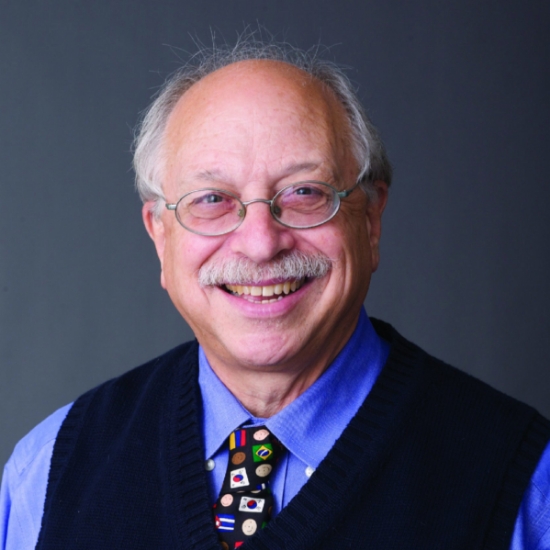
Co-Director, Center for Applied Legal Studies
Delaney Family Professor of Public Interest Law, Georgetown Law
Philip G. Schrag is Co-Director of the Center for Applied Legal Studies, where students represent asylum seekers, and Delaney Family Professor of Public Interest Law at Georgetown Law.
Before joining the Law Center faculty in 1981, he was Assistant Counsel to the NAACP Legal Defense and Educational Fund, Consumer Advocate of the City of New York, a professor at Columbia University Law School, and Deputy General Counsel of the U.S. Arms Control and Disarmament Agency.
He is a prolific author, having written dozens of articles on political asylum, consumer law, nuclear arms control, and various other topics for law journals and popular publications.
He holds a bachelor’s degree from Harvard University and a law degree from Yale University.
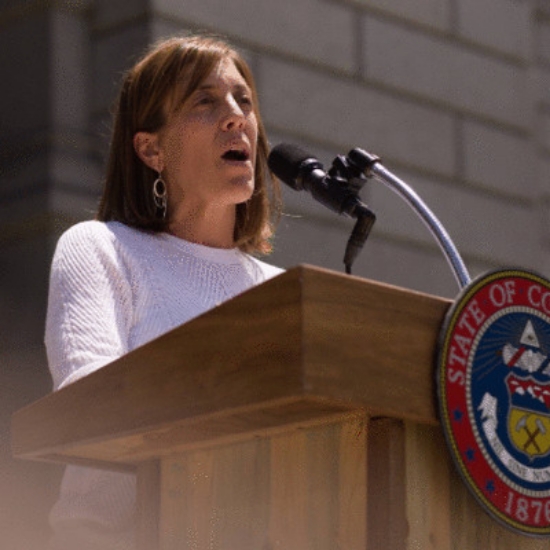
Vice President of Policy and Practice, Welcome.US
Kit Taintor is Vice President of Policy and Practice at Welcome.US, a nonprofit initiative with the mission to inspire and empower people from across divides to unite in common purpose and welcome newcomers, meet their essential needs, and help them thrive.
Before joining Welcome.US in April 2022, Ms. Taintor worked for Colorado Governor Jared Polis as his Senior Advisor on New American integration and inclusion. In this role, she helped shepherd the passage of legislation that created an Office of New Americans, secured millions in state-funded housing supports for newcomer Afghans, ensured key data privacy protections for immigrants, streamlined the ability of foreign-trained health-care providers to relaunch their careers, and opened the door for occupational licensing for all immigrants and refugees, regardless of their legal status. Before that, she served as Colorado's State Refugee Coordinator and Executive Director of the Colorado African Organization, an immigrant-led community-based organization. She previously served in the Peace Corps in Malawi.
She attended the University of Virginia and Tulane School of Public Health and Tropical Medicine.